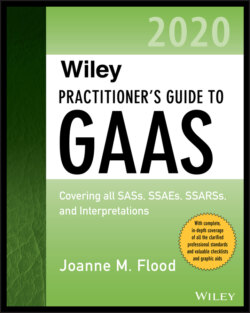Читать книгу Wiley Practitioner's Guide to GAAS 2020 - Joanne M. Flood - Страница 89
The Typical Fraudster
ОглавлениеKPMG released a study of 750 fraudsters in 81 countries, “Global Profile of a Fraudster: Technology Enables and Weak Controls Fuel the Fraud,”1 regarding characteristics of people who commit fraud: They
are often experienced employees in a position to collude with people inside and outside the entity.
usually hold management or senior positions.
do not have a prior history of criminal activity.
are highly respected.
appear trustworthy.
are predominantly male between the ages of 36 and 55
Most (61%) fraudsters are employed by the entity.
In 2010, several organizations (the Center for Audit Quality Financial Executives International, the Institute of Internal Auditors, and the National Association of Corporate Directors) formed the Anti-Fraud Collaboration. The organization’s website at antifraudcollaboration.org contains resources for audits in the form of case studies, reports, videos, articles, and free CPE.
Management’s Override of Controls. The auditor should also be alert to the fact that fraudulent financial reporting often involves the override of controls, and that management’s override of controls can occur in unpredictable ways. Also, fraud may be concealed through collusion, making it particularly difficult to detect.
In recent years, one international company paid a multimillion-dollar fine to the SEC for inflating its fiscal year results to meet earnings expectations and committing other accounting-related violations over a first-year period.2 Another international company paid penalties because it was overstating revenues and assets.3 Both companies improperly accounted for write-downs under ASC 450. One company also failed to properly amortize intangible assets under ASC 350.
Responsibilities for the Prevention and Detection of Fraud. Management and those charged with governance have the primary responsibility for the prevention and detection of fraud. Management should create an atmosphere that makes fraud prevention a priority by creating a culture of ethical behavior supported by oversight. Management should consider potential inappropriate influence over the financial reporting process, such as managing earnings. Management is responsible for designing and implementing programs to prevent, deter, and detect fraud. When management and others, such as the audit committee and board of directors, set the proper tone of ethical conduct, the opportunities for fraud are significantly reduced. (AU-C 240.04)
